10 conclusions from the Tour de France
Cyclingnews checks in on the first rest day
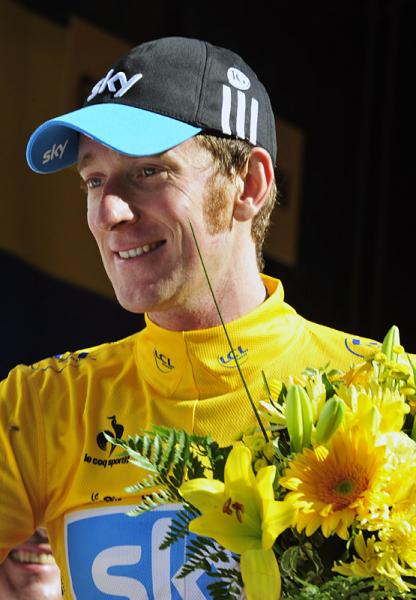
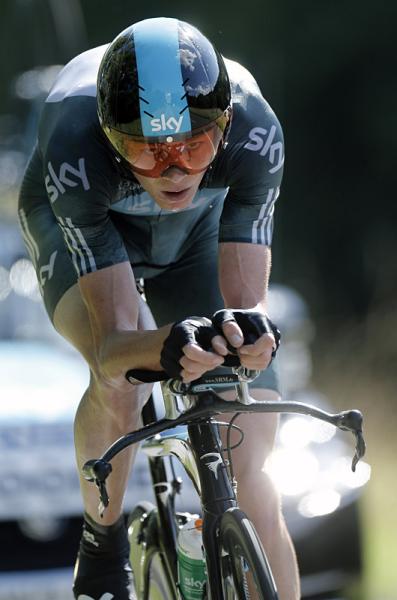
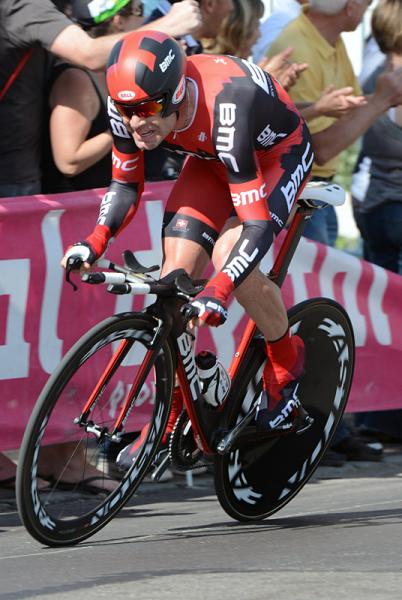
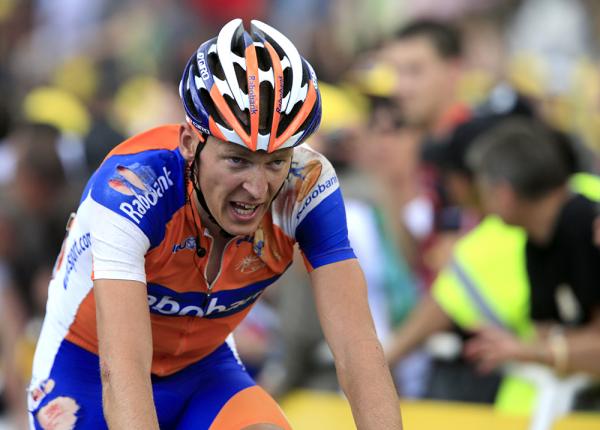
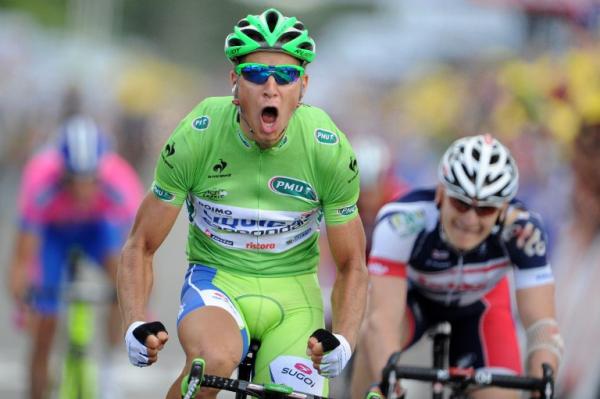
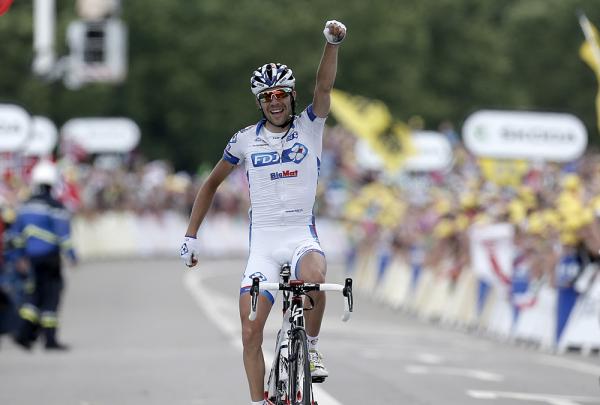
1. Allez Wiggo, Allez the f**king w**kers
It was only a matter of time before Bradley Wiggins was asked about doping during the Tour de France. He knew it, his team knew it, and so did the millions of fans watching at home. Served on a plate and with the opportunity to address the matter head on Wiggins scored nil points with his attack on those questioning him on Twitter. Part of Wiggins’s argument was fair, those that hide behind pseudonyms are able to throw mud but the wider aspect of Wiggins’s behaviour needs further examining.
The unfounded murmurs online – and in the press room too – have clearly rattled him. But compare his statements with Armstrong's during his seven year reign. The American was measured, composed, rehearsed but lacking a level legitimacy, and while Wiggins still has more to do in this year’s Tour to clear up his stance on doping, at least he spoke from the heart. There’s no doubt he has worked hard, perhaps harder than all of his rivals, but the next time he’s offered the doping topic lets hope he has the maturity and quite frankly the respect for the yellow jersey to deliver something with a little more substance.
The sport has suffered greatly in the last 20 years with a number of Tour winners knocked off the podium due to doping. That’s not Wiggins’s fault but in this culture it’s perfectly reasonable for the yellow jersey to be questioned on their ethics and while the press and the fans are not asking Wiggins to apologise for 20 years of lies and cheats they would like more concrete assertions.
2. Nationalism in the press room
This leads nicely onto the second point: nationalism and back-patting in the press room. Whether it’s segments of the Spanish press corps begging Alberto Contador for autographs after his 2009 Tour win, or the sight of the British brigade applauding ‘Chris’, as they affectionately call him, at the track in London’s Olympic test event, national bias is clearly blurring the lines of reporting. It’s the same as when Mark Cavendish’s missed test was slowly seized upon by the UK: if it had been Contador the headlines would have been published within minutes, or when the British (sorry to keep using them as an example) made snide comments about Astana during the Classics on Twitter. There’s a tendency to support riders from your own neck of the woods and privately there’s nothing wrong with that. Similarly there’s nothing wrong with knowing your audience and tailoring chunks of content to their needs but blatantly misleading readers is an insult to their intelligence.
3. Wiggins in command
Finally, to the racing and to Wiggins’s on the bike performance. The prologue was an indication but Besançon was the confirmation with Wiggins providing proof that he is the outright favourite for this year’s race. Having navigated the first two mountain tests, not to mention a dicey first week, the time trial was a chance for the British rider to put time into his rivals. The 1:43 gap to Cadel Evans is more than anyone predicted but the 2:06 on Vincenzo Nibali may prove to be problem if the Italian can rise to the occasion in the Alps. Wiggins has looked commanding on the road and talk of mental frailty, on the road at least, seem somewhat misplaced at present.
4. Sky’s plan B
Chris Froome’s position only proves that Sky has a plan B but it will also need Dave Brailsford and Shane Sutton to balance and prioritise. The aim was always to finish in Paris with yellow and nothing, not even two riders on the podium, should cloud that. If Froome is needed to support Wiggins in the mountains it should be an instinctive order to give. It gets interesting if Wiggins has a bad day though…
5. Evans looking for final week turnaround
Evans was hoping to lose less than a minute but by the end of the stage 9 time trial he’d lost a whopping 1:43, the same time deficit he’d been handed at the Dauhpine but over a course some 11.5 kilometres shorter. While he looks the match of Wiggins in the mountains he must now hope that the British rider has a bad day because with a further 53.5 kilometres of time trialing still to come the Australian could lose a further two and a half minutes. It’s an inversion of last year’s race when Evans knew that he could ride conservatively for the majority of the race and then beat the Schlecks in the final time trial. Now he must show his aggressive nature, not only looking to distance Wiggins on descents, but isolate him from Michael Rogers and Richie Porte far quicker in the mountains and hope that both Nibali and Jurgen Van den Broeck are there to be willing accomplices. Stage 11 to La Toussuire could provide a suitable launch pad: just 148 kilometres in length, it still holds four demanding climbs. There may be a low amount of mountain finishes in this year's Tour but that should make for more exciting and daring attacks from further out.
The latest race content, interviews, features, reviews and expert buying guides, direct to your inbox!
6. Sky’s middle order
The loss of Kanstantsin Siutsou won’t be felt until the third week of the Tour but the underrated domestique’s absence could be a huge blow for Wiggins and his team. The Belarusian played a pivotal role in dividing his duties between supporting Cavendish and the team’s GC ambitions. The loss means that Richie Porte and Michael Rogers will have to share added responsibility in the mountains. Both have lived up to the task so far, and their energy-saving rides in the time trial will help.
7. Garmin
Heading into the Tour the team looked competitive and while bad luck has been a major factor there are signs that Vaughters needs to address his squad. Tyler Farrar has not won a sprint in over a year but what’s more worrying is that he doesn’t look close to breaking his duck. The longer his drought goes on the less support Vaughters will throw at the sprinter’s lead-out in Grand Tours. David Millar, David Zabriskie, Christian Vande Velde and Tom Danielson have all served the team well since its inception in 2008 but with all of them bar Millar out of contract in December is it time for Vaughters to search for new talent? Dan Martin and Sep Vanmarcke appear to suggest a bright future, while Hesjedal was no fluke in this year's Giro but the team needs greater firepower to back up their leading lights.
8. Robert Gesink's Tour woes continues
Another Tour and another disappointment for the Rabobank leader. The Dutch have been longing for a Tour contender ever since their over-hyped Michael Boogerd but their faith and patience are beginning to run out in Gesink. There’s no doubting the 26-year-old’s talent and he’s correctly pointed out that he crashes no more or less than the average rider in the peloton. The problem lies in the fact Gesink’s falls are always more serious and even if he’s not breaking bones he’s doing enough damage to his body to rule him out of the GC battle. At 26 time is still on his side but he won’t enjoy another Tour with complete leadership again.
9. Over and out
Times from the Besançon time trial: Alexandr Vinokourov @3:47, Levi Leipheimer @3:48, Alejandro Valverde @4:01, Chris Horner @5:24, Christian Vande Velde @6:20: no longer top-ten threats in Grand Tours.
10. The new generation
Peter Sagan has been on the scene for a number of years, picking up wins and competing in the grandest races, but his debut Tour has seen him demonstrate his skills to a whole new audience. The Slovak's remarkable 2012 season rolls on in the Tour with three stage wins, refreshing victory salutes and a lead in the green jersey. It’s unfair to compare his performance to Edvald Boasson Hagen, who he has beaten twice in uphill sprints, as the Norwegian has been working for Sky’s greater ambitions but Sagan at 22 has become the biggest young talent in the sport, something that could be rubber stamped in the Olympics later this month.
The Slovak hasn’t been the only star, though. Thibaut Pinot showed the more established French stars how it’s done on stage 8 to Porrentruy with a perfectly timed and executed move. Much of the credit goes to Jeremy Roy, who Pinot later dedicated the win to, for his unselfish riding but Pinot, who had to persuade team manager Marc Madiot to let him ride the Tour this year, is another undoubted star. Tony Gallopin, Tejay van Garderen and Rein Taaramae (although he’s been around for a bit) also deserve a worthy mention.
Daniel Benson was the Editor in Chief at Cyclingnews.com between 2008 and 2022. Based in the UK, he joined the Cyclingnews team in 2008 as the site's first UK-based Managing Editor. In that time, he reported on over a dozen editions of the Tour de France, several World Championships, the Tour Down Under, Spring Classics, and the London 2012 Olympic Games. With the help of the excellent editorial team, he ran the coverage on Cyclingnews and has interviewed leading figures in the sport including UCI Presidents and Tour de France winners.
